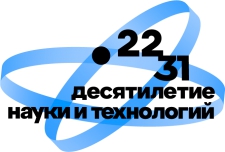On the identification of a hybrid strain of a new coronavirus infection
Print version|
11 08.2022
In connection with the appearance in the media of information about the identification in Russia of a variant of the coronavirus, which is a hybrid of strains "delta" and "omicron", Rospotrebnadzor reports.
|
As of 08/10/22, 6 genomic sequences related to the indicated COVID-19 variant have been loaded into the VGARus database. The sequences are dated July and early August. Five samples for research were taken in St. Petersburg, one in Moscow.
The variant belongs to the non-dominant lines of COVID-19 and currently does not have a significant impact on the epidemiological situation either in St. Petersburg or in Moscow. The epidemiological situation in these cities is similar to the situation in the whole country and is characterized by the active spread of COVID-19 BA.4 / BA.5 subvariants with a predominance of BA.5 in the strain composition.
Patients who were diagnosed with a hybrid variant of COVID-19 suffered a mild form of the disease. None of them required hospitalization.
At the moment, there is no reason to believe that the hybrid variant leads to a more severe course of the disease or is more transmissible.
The appearance of hybrids is not a unique phenomenon; it is characteristic of many viruses and is one of the evolutionary-adaptive mechanisms. Previously, hybrid strains of COVID-19 were recorded in Europe, the USA and Latin America. They are not widely distributed in the population.
We note that recent reports on the detection of a hybrid strain in Russia were given with reference to an American geneticist. We drew attention to the indifference of American scientists to the epidemiological situation in Russia. We recommend that our colleagues closely monitor what is happening in their own country, because the situation with COVID-19 in the United States remains quite tense.
The current COVID-19 strain variability monitoring system VGARus in Russia allows you to quickly monitor the emergence and spread of new coronavirus variants in the country, as well as take effective response measures based on aggregated data.
The epidemiological situation with COVID-19 is under strict control of Rospotrebnadzor.






